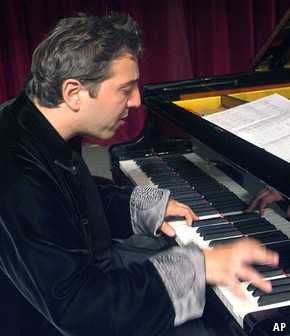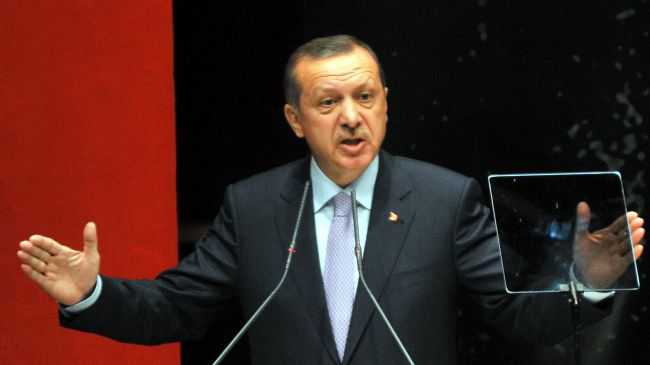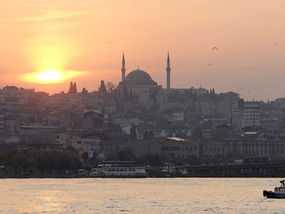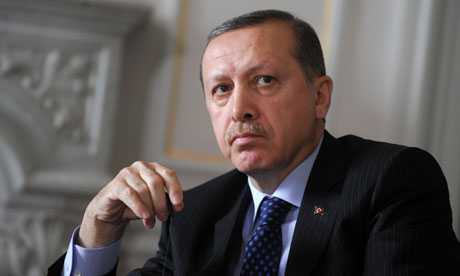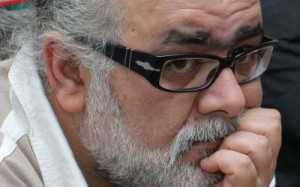While the AKP has certainly become more outspoken about its intent to assert influence over Turkey’s academic institutions, it has been doing so behind the scenes for several years now.
Julia HARTE
İstanbul – BİA News Center
03 April 2012, Tuesday

Two years ago, a scientist named Onur Hamzaoğlu began finding arsenic, mercury and lead in the women and children who live in Turkey’s Kocaeli Province, the country’s second biggest industrial zone.
Hamzaoğlu, the head of the public health department at the local university, encountered these heavy metals in infants’ feces and mothers’ breast milk in the course of a three-year research project that began in 2009 and will end later this year.
When he told a journalist about his findings in early 2011, however, Hamzaoğlu triggered a government campaign aimed at discrediting him and his research.
The mayor of Kocaeli, a member of Turkey’s ruling Justice and Development Party (AKP) dismissed Hamzaoğlu as a “charlatan” in the media, and sued for Hamzaoğlu’s imprisonment on the grounds that he was “inciting fear and panic in the public”. Turkey’s Ministry of Health sent a similar complaint to the AKP-controlled Council of Higher Education, provoking Kocaeli University’s president to launch disciplinary and ethical investigations against him.
On March 15, Kocaeli’s Basic Criminal Court awarded Hamzaoğlu and his supporters a small victory. For insulting Hamzaoğlu in the media, the Kocaeli mayor will have to pay a fine of approximately $2,000.
If the mayor wins his suit, however, Hamzaoğlu could still face up to four years in jail for going public with his research. Hamzaoğlu’s employer, Kocaeli University, will have to give permission before he can face the criminal trial that could result in his imprisonment.
In most countries with advanced systems of higher education, he wouldn’t need to worry about his university selling him out that way. But in Turkey, Hamzaoğlu says, “Politicians in local governments and the Council of Higher Education put pressure on universities,” preventing scientists from exercising full academic freedom.
Hamzaoğlu’s case is just one instance of political interests trumping scientific integrity. But a larger shadow of government intervention is creeping over Turkey’s entire scientific community.
*
Surrounded by the smell of fresh paint and the echo of still-empty office space, Mehmet Ali Alpar explains why he and 66 others resigned from Turkey’s twenty-year-old national science academy (TÜBA) in November, and helped found an alternate academy, the BA, whose headquarters we are now sitting in.
“The government’s perception was that TÜBA was prejudiced,” says Alpar, who was part of TÜBA’s first assembly in 1993 and now chairs BA.
The AKP, which is the most religious of Turkey’s major political parties, was uneasy with TÜBA’s wholehearted endorsement of Darwinian evolution, Alpar suspects.
“All members of TÜBA, like scientists anywhere, are not creationists,” explains Alpar. “I suspect this is a reason for the government seeing us as biased. The dangerous step is when the politicians say, ‘Well, since we won a majority in the elections, we can decide on all issues, including scientific issues.’”
That’s what happened to TÜBA last autumn. Using a controversial procedure for making “law by decree”, Prime Minister Recep Tayyip Erdoğan‘s cabinet issued two decrees fundamentally altering the structure of TÜBA.
Rather than appoint its own members internally – established practice in every other international science academy – two-thirds of TÜBA’s membership would henceforth be candidates selected by two government bodies: the Council of Higher Education (YÖK) and the Scientific and Technological Research Council of Turkey (TÜBİTAK).
Nearly half of TÜBA’s 138 members resigned in protest.
“Before the decrees were announced, TÜBA was never consulted, and nobody ever asked for any information from TÜBA,” says Yücel Kanpolat, the president of TÜBA and a former professor of neurosurgery at Ankara University.
“Myself and the remaining members are all waiting, hoping that the government will finally understand its mistake and take a step toward reversing the new procedure.”
But many former TÜBA members don’t share Kanpolat’s optimism. At the end of February, Alpar says, he learned that universities had already been asked to nominate TÜBA member candidates for YÖK’s consideration. Neither YÖK, TÜBİTAK nor the Ministry of Science, Industry and Technology returned calls for comment on this article.
Shortly after stepping down from TÜBA, Alpar and sixteen of the academy’s other former members founded the BA. Now 52 members strong, the new academy received a one-year donation of free office space from Turkish businessman Izzettin Silier, and has already started a conference series and begun planning educational initiatives.
*
“We want to raise religious youth. Do you expect the conservative democrat AK Party to raise an atheist generation? That might be your business, your mission, but not ours,” said Prime Minister Erdoğan in a parliamentary address at the beginning of February.
While the AKP has certainly become more outspoken about its intent to assert influence over Turkey’s academic institutions, it has been doing so behind the scenes for several years now.
YÖK itself was a fiercely secular institution until 2007, when Turkish President Abdullah Gül appointed a new president from the AKP’s ranks to bring YÖK’s aims and activities in line with AKP ideology. In the same year, Gül appointed a new president to TÜBİTAK, and the next year, the government amended the charter of formerly autonomous TÜBİTAK so that Erdoğan would select half of its 14-member board.
In 2009, as TÜBİTAK’s magazine was preparing to release an issue centered around the 200-year anniversary of Darwin’s birth, the cover story on Darwin was pulled at the last minute and the magazine’s chief editor fired.
“The way that TÜBİTAK has been increasingly brought under the control of the AKP is emblematic of the way that the AKP and the bureaucracy have become increasingly interwoven,” says Howard Eissenstat, a professor of Middle Eastern Studies at St. Lawrence University and Amnesty International’s Turkey specialist.
The degree to which the AKP has now become synonymous with the Turkish state hasn’t been seen since the Turkish Democrat Party enjoyed single-party power in the 1950s, according to Eissenstat. In the half century following the Democrat Party’s fall from power, a handful of parties wrangled for their place in Turkey’s government, each with a separate constituency to protect.
“In a typical university, you used to have departments that were typically affiliated with one party or another,” says Eissenstat.
But now, he explains, “we’re seeing more and more administrators who are sympathetic to the AKP, who see themselves as representatives of it, and they are making it difficult to do work and be promoted if you’re not following the party line.”
Alpar agrees that the AKP’s effort to exert its influence over Turkey’s educational institutions highlights a deeper, more sinister trend.
“This is part of a recent political climate in this country. It boils down to a mistaken interpretation of what democracy is. Democracy doesn’t say that a majority vote gives the government infinite wisdom and the mandate to decide on all technical matters.”
*
Since news first broke of the lawsuit and investigations against Hamzaoğlu, his situation has attracted considerable attention in Turkey and beyond. The International Association of Health Policy called for scientists around the world to sign a petition of support. Hamzaoğlu’s case was reported in The Times of London and mentioned in a recent post on The New York Times’s website.
TÜBA has also received letters from science academies all over the world, expressing dismay at the change in its membership process.
“A loss of autonomy would diminish [TÜBA’s] effectiveness, both within Turkey and the international scientific community,” wrote Ralph Cicerone, president of the U.S. National Academy of Sciences, in an open letter to President Gül.
Over the long term, sacrificing scientific integrity and academic freedom to the ruling party’s increasing need for control will ultimately make Turkey less competitive, says Eissenstat.
“There are real costs to this sort of repression. There’s almost certainly going to be a greater brain drain in Turkey. There’s almost certainly going to be a drop in its scientific productivity.” (JH/HK)
